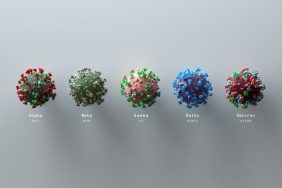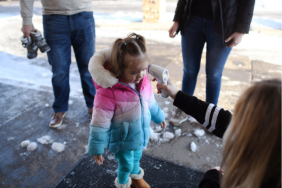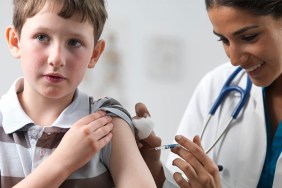As the pandemic crisis drags painfully, slowly on, our understanding about it has begun to evolve at a rapid speed, which has lead to conflicting information about how the deadly disease affects kids. We were all told in the beginning not to worry because kids simply weren’t getting sick. The prevailing thought was that kids were likely “super spreaders” and if they had the infection they wouldn’t likely show any symptoms.
But now kids are getting sick and for some kids, the symptoms are very frightening.
In New York state, 64 children have been confirmed with a mysterious condition called Pediatric Multi-System Inflammatory Syndrome. This new twist in the pandemic story is a complication of a COVID-19 infection and it presents with worrying symptoms.
According to an interview with NPR, Jane Newburger, a cardiologist and professor of pediatrics at Harvard Medical School says that symptoms include “persistent fever, extreme inflammation and evidence of one or more organs that are not functioning properly.” She went on to say that this mysterious condition is “still very rare, but there’s been a wave of cases. Physicians and scientists are working hard to understanding the mechanisms at play, and why only some children are so severely affected”
Scientists believe that this new condition resembles a known condition called Kawasaki Disease Shock and Syndrome, which is an acute illness in kids. This rare condition causes rashes, conjunctivitis, swollen lymph nodes, redness of the lips, tongue, and mucous membranes, and swelling in extremities. Some kids will develop enlarged coronary arteries and aneurysms. Scary stuff.
Dr. Newburger told NPR that the leading theory about this mystery illness is that the kids who have it are not actually Covid positive Researchers now think that some kids may have been exposed to someone with a Covid infection and so their immune systems began to make antibodies – here’s the twist – for kids with this Pediatric Multi-System Inflammatory Syndrome, its the immune system reacting to the antibodies that is causing all the strange symptoms.
“This is only happening in susceptible individuals whose immune systems are built in a particular way,” Newburger told NPR. “It doesn’t happen in everybody. It’s still a really uncommon event in children.”
But as unnerving as this news may sound there are a few points that parents need to know right now.
- This is extremely rare and not likely to happen to your child
- If your child has any symptoms such a fever, redness, or swelling, call your pediatrician and report all symptoms including whether or not your child has been exposed to anyone with a Covid infection.
- It is critical that every family practices social distancing, regular hand washing, and wearing face masks when they must go into public.
- As the pandemic continues to be closely studied, the information around is likely to shift and evolve so stay up to date with trusted sources such as the CDC, the WHO, and the Johns Hopkins Coronavirus Dashboard.
Help Prevent the Spread of the Coronavirus
Visit the Centers for Disease Control at CDC.gov or the World Health Organization at Who.int for the latest information on the coronavirus and learn what you can do to stop the spread.
More About Children’s Health:
- How PANS/PANDAS Turned My Family’s World Upside Down
- RSV Season Is At Its Peak And Take It From Me, It’s No Joke
- Is Croup Contagiou? Plus, How to Get Rid of This Nasty Cough








